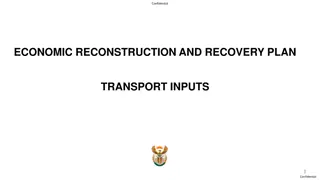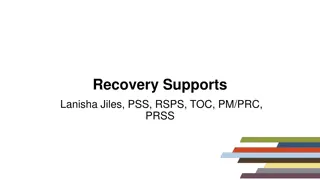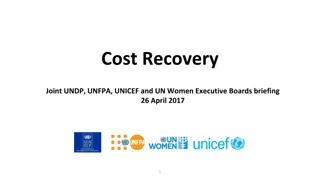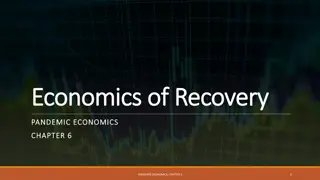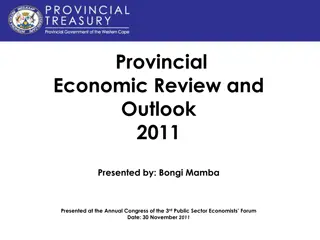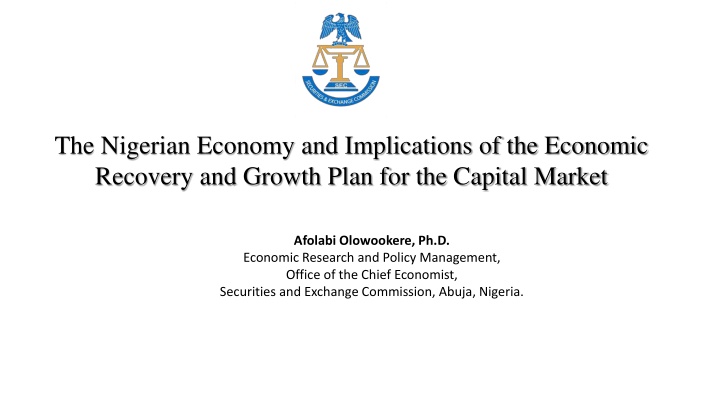
Implications of Economic Recovery and Growth Plan in Nigerian Economy
Analysis of the global and domestic economic landscapes, focusing on growth rates, key indicators, and implications of the Economic Recovery and Growth Plan for the Nigerian capital market. Insights on macroeconomic stability, economic diversification, and building a competitive economy are discussed.
Download Presentation

Please find below an Image/Link to download the presentation.
The content on the website is provided AS IS for your information and personal use only. It may not be sold, licensed, or shared on other websites without obtaining consent from the author. If you encounter any issues during the download, it is possible that the publisher has removed the file from their server.
You are allowed to download the files provided on this website for personal or commercial use, subject to the condition that they are used lawfully. All files are the property of their respective owners.
The content on the website is provided AS IS for your information and personal use only. It may not be sold, licensed, or shared on other websites without obtaining consent from the author.
E N D
Presentation Transcript
The Nigerian Economy and Implications of the Economic Recovery and Growth Plan for the Capital Market Afolabi Olowookere, Ph.D. Economic Research and Policy Management, Office of the Chief Economist, Securities and Exchange Commission, Abuja, Nigeria. Office Of The Chief Economist April 13, 2017
Outline The Global Economy The Domestic Economy Economic Recovery and Growth Plan and Implications for the Capital Market Macroeconomic Stability Economic Diversification Building a competitive economy Investing in our people Governance Delivery Conclusion
The Global Economy Global Growth Rate and Expectations (2015 2018) Global economy activity is projected to pick up in 2017 and 2018 by 3.4% and 3.6% respectively. US Protectionist stance could influence global economy negatively. Tariff on imports would increase prices of all goods With rising inflation, Fed Reserve might have to increase interest rate again US trading partners may retaliate Uncertainties regarding the BREXIT process. UK has not actually left EU but set for the two years negotiations with the rest of EU Consumers confidence has not suffered, and by and large, things have gone on as before Uncertainties affect investment planning Moderate growth is expected for China as well as continued policy support. Tighter monetary policy is envisaged in the coming months. Brazil still in difficult financial situation, however, Inflation and interest rates have eased during the year India s recent demonetisation had a negative impact on domestic consumption, despite this, an economic expansion was recorded at the end of 2016. Growth in SSA held back by the slowdown/challenges faced by some of the largest economies in the region In Nigeria, slightly better prospects due to rising foreign reserves, Improvement in Niger- Delta security higher oil production and relatively less volatile exchange rate Region/Country 2015 2016 2017 2018 World 3.20 3.10 3.40 3.60 Advanced Economies 2.10 1.60 1.90 2.00 Euro Area 2.00 1.70 1.60 1.60 EMs and Developing 4.80 4.10 4.10 4.50 Sub-Saharan Africa 3.70 3.40 1.60 2.80 United States 2.50 2.60 1.60 2.30 United Kingdom 1.40 2.20 2.00 1.50 China 6.00 6.90 6.70 6.50 India 7.70 7.60 6.60 7.20 Brazil 1.5 -3.80 -3.50 0.20 South Africa 1.6 1.30 0.30 0.80 Nigeria 2.70 -1.50 0.80 2.30
Domestic Economy KEY INDICATORS Inflation is slowing due to base year effect, low purchasing power and exchange rates alignment. FACC in Apr. 2017 slightly rose to N467.8bn from N467.8bn attained in Mar. 2017 due to increase in oil production and oil price. The All-Share Index stood at 25,818.87 points at the end of April 2017 and Market capitalization for the same period was N8.9trn Average OBB and O/N rates rise as high rates boosts preference for fixed income instrument Price of Bonny Light averaged $51.91 in March 2017 (OPEC), the first decline since November 2016. Also, rise in prices partly due to OPEC s decision to cut production. Excess supply have dampened growth while demand is expected to rise in the next few months Nigeria production averaged 1,545 bpd in March, 2017 (OPEC) Indicators 2016 Q1 2016 Q4 2017 Q1 2017 Apr Inflation(%) FAAC (N Billion) 12.77 18.55 17.26 297.8 426.8 466.9 467.8 External Reserves (($ Billion) Exchange rate (Inter-bank) US$ Exchange rate (BDC) US$ All Share Index 30.86 27.9 25.8 30.3 306.4 197 305.2 306.4 320.9 455.6 429.7 390.0 25,818.87 25,145.28 26,874.62 25,516.34 Market Capitalisation (N Bn) Ave. Open Buy Back (%) 8.9 8.65 9.22 8.83 45.8 5.97 7.1 20.4 Ave. Overnight (%) 49.0 6.51 7.8 21.1 Oil Price (US$/b) 52.16 38.53 53.91 51.91 Oil Production (tb/d - 1,761 1,474 1,545
Economic Recovery and Growth Plan (ERGP) The ERGP is a medium term plan (2017-2020) which builds on the Strategic Implementation Plan developed for the 2016 budget. It targets the attainment of a sustainable inclusive growth driven by: A focus on tackling constraint to growth Leveraging the private sector Promoting national cohesion and social inclusion Letting markets function Upholding core values in Nigeria s Constitution The Plan has three broad strategic objectives Restore growth through macroeconomic stability and economic diversification Build a globally competitive economy through investment in infrastructure, improvement in business environment and promotion of digital-led growth Invest in the Nigerian people through programmes on inclusive social inclusion, job creation, youth empowerment and improved human capital ERGP is a 140 page document with 7 sections We offer summaries of the objectives and strategies in each chapter Drawing implications for the capital market?
Restoring Growth - Macroeconomic Stability Plan s Reference to Capital Market Suggestions to the Capital Market Objectives Strategies Restore macroeconomic stability Promote sustained economic growth Harmonize monetary, fiscal and external policies Create jobs Target of annual average growth of 4.62% Target of inflation rate of 9.9% Increase oil production through dialogue with militants and improve non-oil revenue generation Self sufficiency in agriculture Promote non-oil exports Attract foreign investors through incentives The section did not explicitly assign any role to the capital market Take advantage of government s privatization plans to encourage listing The plan to reduce domestic borrowing can ease funds for companies and reduce crowding out
Restoring Growth - Economic Diversification Plan s Reference to Capital Market Suggestions to the Capital Market Objectives Strategies Build on Presidential Initiative on Fertilizer Develop Special Economic Zones (SEZs) to strengthen manufacturing Review the capitalization of some financial institutions to encourage lending to agriculture and manufacturing sectors Federal Mortgage Bank of Nigeria will be capitalized from N2.5 billion to N500 billion Improve Niger Delta security, Revamp existing refineries, Improve the business environment Capital market can be a long-term source of funding for government priority areas such as agriculture and solid minerals Self-sufficiency in food Raise contribution of agriculture to GDP from N16 trillion in 2015 to N21 trillion by 2020 Double Contribution of manufacturing to GDP increase the volume of assets and diversity of financial instruments Reduce housing deficit Restore oil production Increase local refining capacity Become a net exporter of petroleum products Encourage private equity and venture capital players through an attractive fiscal and regulatory framework to promote innovation and technology-led industries Can be a means of obtaining capital for the financial institutions identified in the plan Several capital market instruments can be used towards achieving the government s objective of reducing the housing deficit, eg. Infrastructure fund, Real Estate Investment Trusts and Mortgage-Backed Securities
Building A Competitive Economy Plan s Reference to Capital Market Suggestions to the Capital Market Objectives Strategies Build a competitive economy Accelerating infrastructural development (power and transport) Make it easier to do business in the country Improve access and facilitate private sector investment in power generation Construction of roads and airport Privatize power generation assets (NIPP) Restructure the Transmission Company of Nigeria Exploit the pool of sustainable development funds for infrastructure projects Reforms to ease doing business to be overseen by the Presidential Enabling Business Environment Council A strategy for capital market and banking programmes will be developed which will ensure that all upstream industry operators get paid for each contract. The capital market infrastructure bonds and diaspora bonds can be used as leverage for a sustainable and alternative mix of funding for critical infrastructure projects. The capital market can be a source of funding for the Federal Government by issuing bonds like infrastructural bonds for financing the building of the Mambilla hydropower plant as well as other major infrastructures. Also the privatization of NIPP generating assets could be done through the stock market for efficient pricing, wealth distribution and liquidity. Assets slated for concession may also be considered for listing now or later when turned around.
Investing In Our People Plan s Reference to Capital Market Suggestions to the Capital Market Objectives Strategies Healthcare improve the availability, accessibility and quality Education improve quality & girl care education Social Inclusion social safety net programs Job creation and Youth Empowerment Population and Growth Management Environmental Sustainability Revitalize healthcare system Expand coverage of NHIS Improve teacher quality Review education curriculum in line with international best practice emphasis on made in Nigeria goods review and revise population policy forest plantations in each state The raising of green bond to finance the environmental projects Green bonds appear on the front burner Studies into and awareness in the structuring, pricing and regulation of this instrument and other avenues that the capital market can support the environment.
Governance Plan s Reference to Capital Market Suggestions to the Capital Market Objectives Strategies Provide incentives and protection of whistle blowers Enhance capacity of anti- corruption agencies Action plan for the north- east Improve amnesty plans Strengthen capacity of security agencies streamline the number of MDAs to eliminate overlapping promotion of result-based management in public service Encourage States to key into the ERGP by developing their own plans and initiatives No specific mention of the capital market However, the 22-point Fiscal Sustainability Plan referred to states: State should consider the privatization or concession of suitable State-owned enterprises to improve their efficiency and management States should attain and maintain a credit rating States are encouraged to access funds from the capital markets for bankable projects States can take advantage of the improved capital market guidelines to issue revenue bonds The capital market has contributions in the area of transparency and anti- corruption with initiatives such as as E-dividends and Direct Cash Settlement which have reduced the number of sharp practices in the nation s financial market. Enhance transparency and anti-corruption by complying with due process Ensure security and public safety of all Nigerians Reform the public sector Strengthen sub- national coordination
Delivery The implementation and delivery of the ERGP will determine its level of success To facilitate full implementation, a delivery approach based on seven principles was adopted 1. Focus on priorities emphasis on the strategies that are most important to achieving the ERGP objectives 2. Establish clear accountability 3. Set targets and develop detailed action plans 4. Mobilize and allocate resource to priority areas 5. Create an enabling environment 6. Monitor and drive progress 7. Communication policy and regulatory
Conclusion The ERGP has the vision of achieving and sustaining inclusive growth for Nigeria. It aims to turn the country into a globally competitive economy. The Plan specifically referred to the capital market in some sections: Economic Diversification: private equity and venture capital players Competitive Economy: infrastructure and Diaspora bonds Investing in our People: Green bonds Governance: Use of capital market by sub-national In addition, we identified: Privatisation through listing Explore capital market instrument to address housing deficit Sub-national to issue revenue bonds. - Design of definite investment plans and programmes Success factors - Specific roles of each Lead MDA, how and when. - Metrics for measuring success - Milestones for ensuring little or no deviations - Safeguarding political interference during election - Timely delivery. - Having all hands on deck (government and private)



